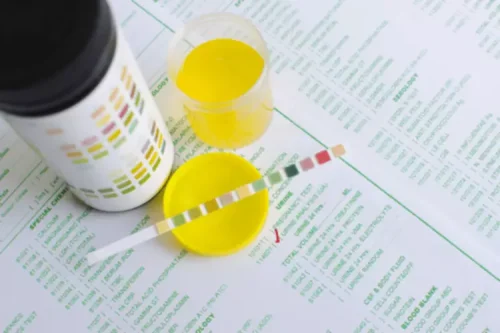
“If you believe in the power of recycling but you don’t have access to a recycling program in your community, this can cause you distress or discomfort because you have this value that’s important to you but you’re not participating in it,” says Dr. Prewitt. We declare no conflict of interest in conducting the study and preparing the present manuscript. Neuroscience research has correlated learning with the elaboration of neural networks in the brain. Many cognitive dissonance addiction experiments have established that, as learning takes place, selected neurons increase their levels of activity and form new connections, or strengthen established connections, with networks of other neurons. Moreover, experimental techniques that prevent neuronal activity and networking inhibit learning. By Kendra Cherry, MSEdKendra Cherry, MS, is a psychosocial rehabilitation specialist, psychology educator, and author of the “Everything Psychology Book.”
Download 3 Free Positive Psychology Tools Pack (PDF)
- In the context of information systems, self-efficacy has been studied in relation to various aspects of user behavior, such as technology adoption, usage behavior, and satisfaction [99].
- Fortunately, there is a wide range of treatment options available for addicts with Cognitive Dissonance such as therapy and residential treatment programs.
- Her wealth of experience coupled with her natural talent for connecting with people and a deep desire to make a difference in the world has made Angie the leader she is today.
- Hypocrisy involves a contradiction between a person’s supposed principles, beliefs, or character and who they really are or how they behave.
- Gradually he began to drink before meetings or interactions (maladaptive coping and negative reinforcement).
- After reading the reports about the various products, individuals rated the products again.
- For example, turning pegs (as in Festinger’s experiment) is an artificial task that doesn’t happen in everyday life.
A man who learns that his eating habits raise his risk of illness feels the tension between his preferred behavior and the idea that he could be in danger. He might ease this feeling by telling himself that the health warning is exaggerated or, more productively, by deciding to take action to change his behavior. If a woman reads that her favorite politician has done something immoral, she could conclude that the charges have been invented by his enemies—or, instead, rethink her support. Dan is passionate about disrupting the current addiction treatment model in the USA and wants to see people overcome their addiction issues and not just remain sober, but thrive in life while living their passion. My duties are individually counseling clients weekly throughout their program, helping them rebuild trust with their families and set boundaries.

Download 3 Free Positive CBT Tools Pack (PDF)

The key is to notice when the pattern of delusional thinking starts to exacerbate and to challenge the feelings and thoughts to prevent relapse from occurring. According to mental health experts, mental health is the ability to handle uncertainty – and those with a higher threshold for delay tend to experience less distress and Cognitive Dissonance than those with lower scores. Cognitive Dissonance theory holds the principle that when two ideas or actions clash (i.e. they are inconsistent with each other) people will do everything in their will to change these ideas until they become compatible. The relationship between Cognitive Dissonance and Addiction is an emerging topic of fascination, particularly for addiction specialists who perhaps are seeking new ways to treat clients (it’s also helpful for those in addiction recovery). Festinger noted that when people realize that behavior is unhealthy, they often find ways to reduce the tension to continue engaging in the behavior. The fear of others noticing the disparity may cause people to hide their true beliefs or actions.

Reducing the Importance of the Conflicting Belief
In other words, he could tell himself that a short life filled with smoking and sensual pleasures is better than a long life devoid of such joys. In this way, he would be decreasing the importance of dissonant cognition (smoking is bad for https://ecosoberhouse.com/ one’s health). However, new information such as “research has not proved definitely that smoking causes lung cancer” may reduce the dissonance. Because these participants did not make a decision, they did not have any dissonance to reduce.

Acquire new information that outweighs the dissonant beliefs.
At Elevate, we consider and employ various therapies throughout our holistic approach to mind-body-spirit addiction recovery treatment. This is when the negatives of the addiction, including guilt and shame, can dominate the decisions they make. Many people need to hit personal rock bottom to see through the denial and decide that they’ve had enough.
Early Studies of Cognitive Dissonance
Accountability is especially important when it comes to reducing cognitive dissonance and regaining control of your life. Trying to suddenly adjust your thoughts, behaviors, and beliefs can be tricky, but someone who knows the full story can help you stay on track. In addition to these emotional experiences, cognitive dissonance can also inspire a change in your behavior or beliefs. Some of these changes can be positive, such as shifting problematic beliefs or harmful habits.
Treatment strategies in the relapse prevention
Inconsistent or conflicting beliefs lead to disharmony, which people strive to avoid. Cognitive dissonance can have many different causes, including addiction, a desire to meet the expectations of others, fear of change, and trauma. People with cognitive dissonance often try to resolve the feeling either by changing their behavior or beliefs or with other strategies like ignoring or justifying the contradiction. Relapse prevention (RP) is a cognitive behavioural treatment program, based on the relapse prevention model27,28. A psycho-educational self-management approach is adopted in this program and the client is trained in a variety of coping skills and responses.
